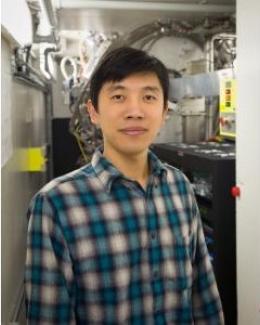Scientific Achievement
A new strategy to design strong metal-support interaction via a reverse route (SMSIR) is reported by starting from the final fully encapsulation, core-shell structure and treating it to obtain an intermediate state with favorable exposure of metal sites for selective hydrogenation of acetylene to ethylene.
Significance and Impact
This new approach to SMSI via a reverse route enables the design and synthesis of supported metal catalysts with enhanced performance by tuning the catalyst structure.
Research Details
- Starting from a core-shell morphology, Pd-FeOx is transformed into a porous yolk-shell structure along with the formation of SMSI upon treatment under reductive atmosphere. Pd atoms immigrate into the Fe3O4 lattice and electrons are partially transferred from Pd to Fe3O4.
- In C2H2 hydrogenation, the Pd-Fe3O4-H catalyst gives 85.1 % selectivity toward ethylene at full conversion in drastic contrast to the complete hydrogenation to ethane over a traditional Pd catalyst.
- The SMSIR alleviates strong H2 adsorption on Pd sites, favoring the formation of surface hydride instead of bulk hydride to enable the selective hydrogenation of C2H2 to C2H4.
Wu, P.; Tan, S.; Moon, J.; Yan, Z.; Fung, V.; Li, N.; Yang, S.-Z.; Cheng, Y.; Abney, C. W.; Wu, Z.; Savara, A.; Momen, A. M.; Jiang, D.; Su, D.; Li, H.; Zhu*, W.; Dai*, S.; Zhu*, H. Harnessing strong metal–support interactions via a reverse route. Nature Communications, 2020, 11, 3042. DOI: 10.1038/s41467-020-16674-y





